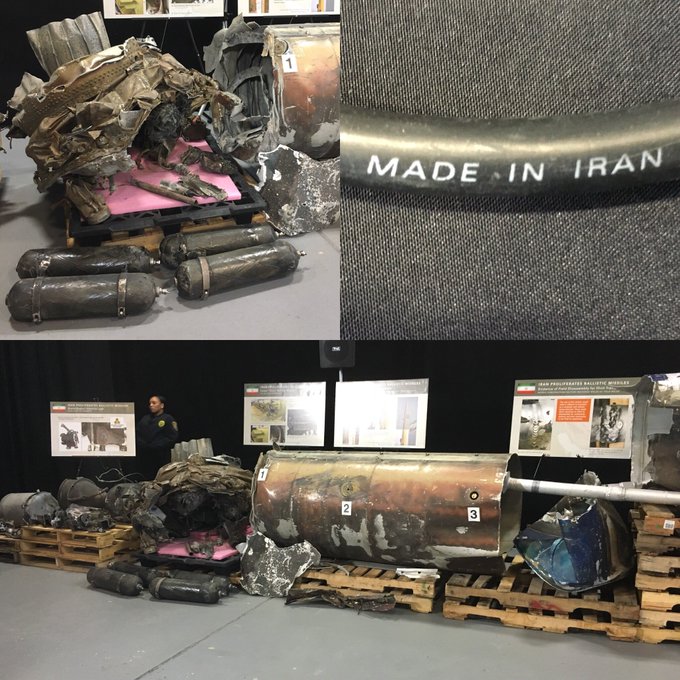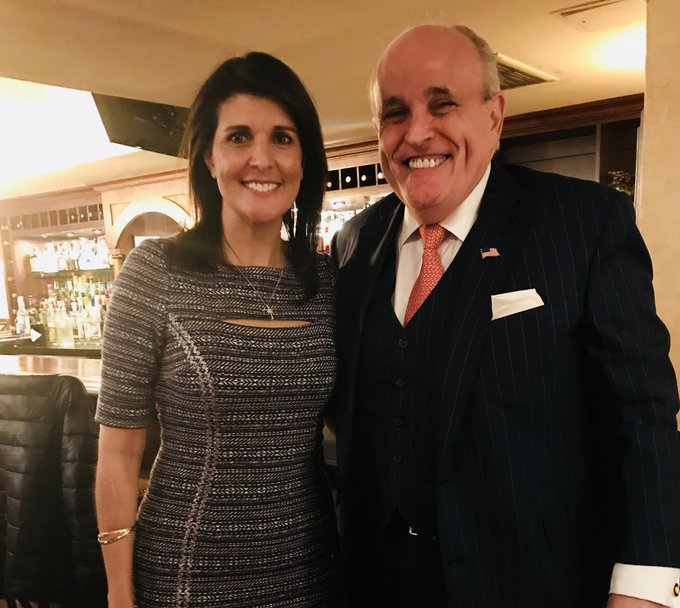Iran uprising shows the peoples demand for regime change
After three weeks of unrest in most parts of Iran, the situation now seems to be calm, although some protests still continue. Does this mean that the revolt has lost steam and that the government has managed, at least for a period of time, to postpone the final confrontation?
Certainly not. Despite the slump in demonstrations and attacks on state buildings, the motives for the uprising still remain. The regime of the Ayatollahs has no cure for the bankrupt economy that ignited the protests. The wealth of Iran has been plundered by the government and spent for terrorist activities and meddling in Syria, Iraq, Lebanon, and Yemen. Above all, grave violations of human rights inside Iran are still continuing.
To judge what the Ayatollahs have done to Iran’s economy, it may be sufficient to notice the price of dollar which was less than 100 rials in 1978, when Ayatollah Khomeini grasped power, comparing to that of today, which is over 40,000 rials. Officials in Tehran are worried. Salimi, a member of Iran’s parliament, said, “One of the problems in our country today is the increasing number of graduates who can’t find a job. We are facing with an army of the unemployed.” Another member of Iranian parliament said, “Many of our banks have gone bankrupt, government is facing a budget deficit of 50,000 billion rials.”
A review of the debates in Iran’s last presidential election sheds light on some of the miseries that the mullahs have inflicted on Iranian people. In the debate before Iran’s May 19 presidential election, all six candidates said that the country’s economy was in ruins. Vice President Ecehagh Jahangiri revealed that one reason for Iran’s poor economy was the existence of a smuggling market valued at $12 billion annually. Ebrahim Raisi, another presidential candidate and a member of the death committee of the 1988 massacre, said the value of the smuggling market is $18 billion annually. Another asserted that “Smuggled goods are imported via 114 official piers. This situation would not be understandable anywhere in the world.” Meanwhile, a huge number of workers, who are forced to work under medieval laws, have not received their salaries for months. Workers demonstrating in Tehran and other Iranian cities, demanding their unpaid salaries, are often arrested and jailed by the armed forces.
A country that exports almost 4 million barrels of oil every day and has giant resources of gas has a rate of unemployment from 12.5 to even 60 per cent in some areas. Ebrahim Razaghi, an economist, told the pro-government news agency Tasnim, “60 to 70 per cent of Iran’s producers are bankrupt or out of business. 20 to 30 million people are in need of food, while some of the officials receive salaries over 100 hundred million rials.” Meanwhile, a close ally of Supreme Leader Khamenei confessed that 40 million Iranians live under the poverty line, 11 million do not have a proper house and live on the outskirts. The Ministry for Labor and Social Welfare in Rouhani’s government has announced that 12 million Iranians cannot afford proper food.
Transparency International has placed Iran among the most corrupt states. A report by this organization says that groups inside the government, which control the economy, normally act on their own and do not respond to any authority. In related news, in 2013, Reuters revealed an entity worth over $95 billion belonging to Supreme Leader Khamenei.
Fox news also reported that Iran is spending billions of dollars on its weapons programs and supporting terrorism around the globe while it ignores the basic needs of its people. The report is titled “Primary Causes of Poverty and Popular Uprisings in Iran.” issued by the National Council of Resistance of Iran ( NCRI ). It asserts that the annual minimum cost to Iranians of keeping the “clerical regime in power” is about $55 billion.
In an attempt to suppress the revolt, both factions inside the regime pretend that the uprising is extinct and everything is now back to normal, but the root cause of unrest -- the dire economic situation of millions of poor people – remains. For a regime with a record of 63 condemnations in the U.N. General Assembly for its flagrant violations of human rights, the gap between the people and the government is so deep that it will only be healed by the collapse of mullah’s government.
Certainly not. Despite the slump in demonstrations and attacks on state buildings, the motives for the uprising still remain. The regime of the Ayatollahs has no cure for the bankrupt economy that ignited the protests. The wealth of Iran has been plundered by the government and spent for terrorist activities and meddling in Syria, Iraq, Lebanon, and Yemen. Above all, grave violations of human rights inside Iran are still continuing.
To judge what the Ayatollahs have done to Iran’s economy, it may be sufficient to notice the price of dollar which was less than 100 rials in 1978, when Ayatollah Khomeini grasped power, comparing to that of today, which is over 40,000 rials. Officials in Tehran are worried. Salimi, a member of Iran’s parliament, said, “One of the problems in our country today is the increasing number of graduates who can’t find a job. We are facing with an army of the unemployed.” Another member of Iranian parliament said, “Many of our banks have gone bankrupt, government is facing a budget deficit of 50,000 billion rials.”
A review of the debates in Iran’s last presidential election sheds light on some of the miseries that the mullahs have inflicted on Iranian people. In the debate before Iran’s May 19 presidential election, all six candidates said that the country’s economy was in ruins. Vice President Ecehagh Jahangiri revealed that one reason for Iran’s poor economy was the existence of a smuggling market valued at $12 billion annually. Ebrahim Raisi, another presidential candidate and a member of the death committee of the 1988 massacre, said the value of the smuggling market is $18 billion annually. Another asserted that “Smuggled goods are imported via 114 official piers. This situation would not be understandable anywhere in the world.” Meanwhile, a huge number of workers, who are forced to work under medieval laws, have not received their salaries for months. Workers demonstrating in Tehran and other Iranian cities, demanding their unpaid salaries, are often arrested and jailed by the armed forces.
A country that exports almost 4 million barrels of oil every day and has giant resources of gas has a rate of unemployment from 12.5 to even 60 per cent in some areas. Ebrahim Razaghi, an economist, told the pro-government news agency Tasnim, “60 to 70 per cent of Iran’s producers are bankrupt or out of business. 20 to 30 million people are in need of food, while some of the officials receive salaries over 100 hundred million rials.” Meanwhile, a close ally of Supreme Leader Khamenei confessed that 40 million Iranians live under the poverty line, 11 million do not have a proper house and live on the outskirts. The Ministry for Labor and Social Welfare in Rouhani’s government has announced that 12 million Iranians cannot afford proper food.
Transparency International has placed Iran among the most corrupt states. A report by this organization says that groups inside the government, which control the economy, normally act on their own and do not respond to any authority. In related news, in 2013, Reuters revealed an entity worth over $95 billion belonging to Supreme Leader Khamenei.
Fox news also reported that Iran is spending billions of dollars on its weapons programs and supporting terrorism around the globe while it ignores the basic needs of its people. The report is titled “Primary Causes of Poverty and Popular Uprisings in Iran.” issued by the National Council of Resistance of Iran ( NCRI ). It asserts that the annual minimum cost to Iranians of keeping the “clerical regime in power” is about $55 billion.
In an attempt to suppress the revolt, both factions inside the regime pretend that the uprising is extinct and everything is now back to normal, but the root cause of unrest -- the dire economic situation of millions of poor people – remains. For a regime with a record of 63 condemnations in the U.N. General Assembly for its flagrant violations of human rights, the gap between the people and the government is so deep that it will only be healed by the collapse of mullah’s government.


















